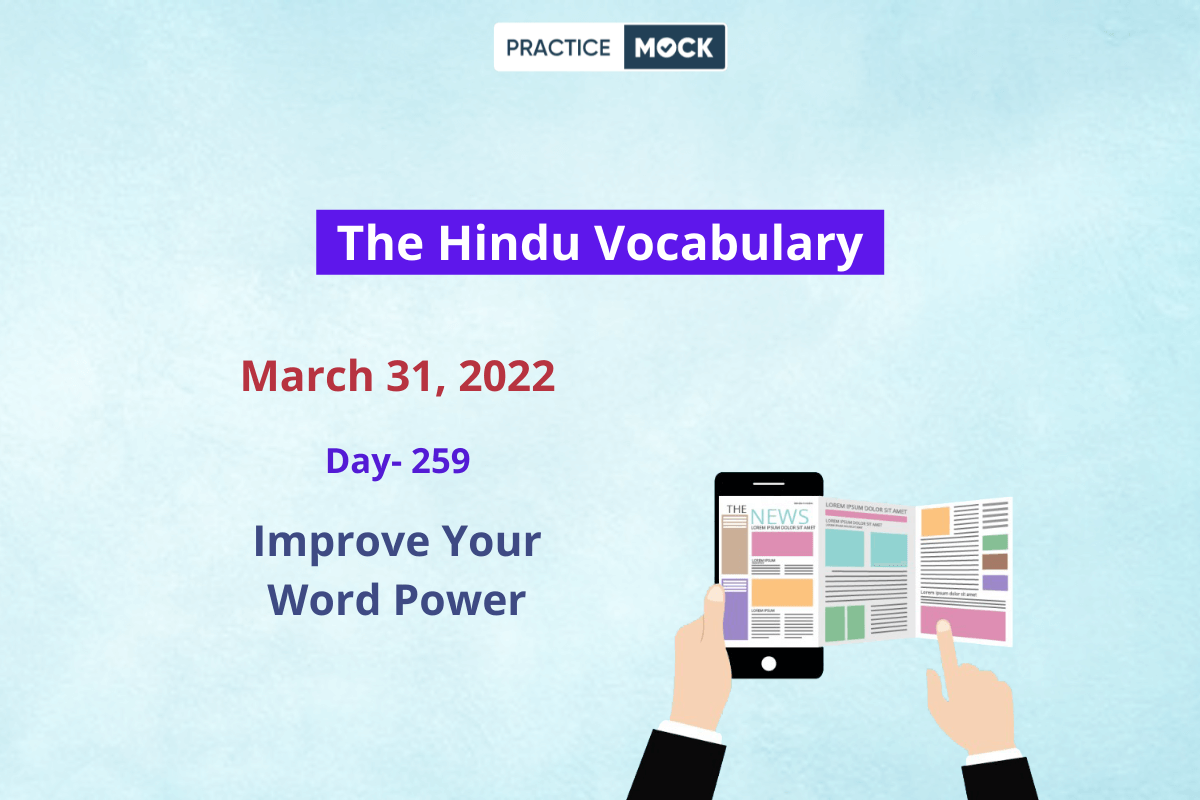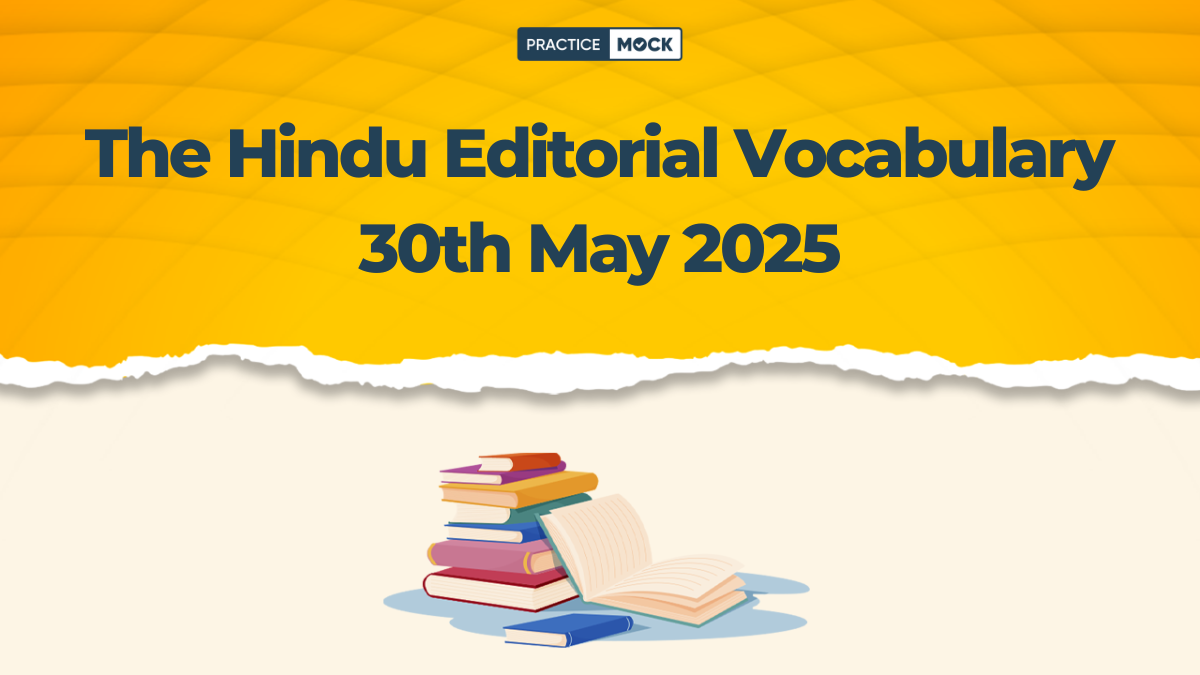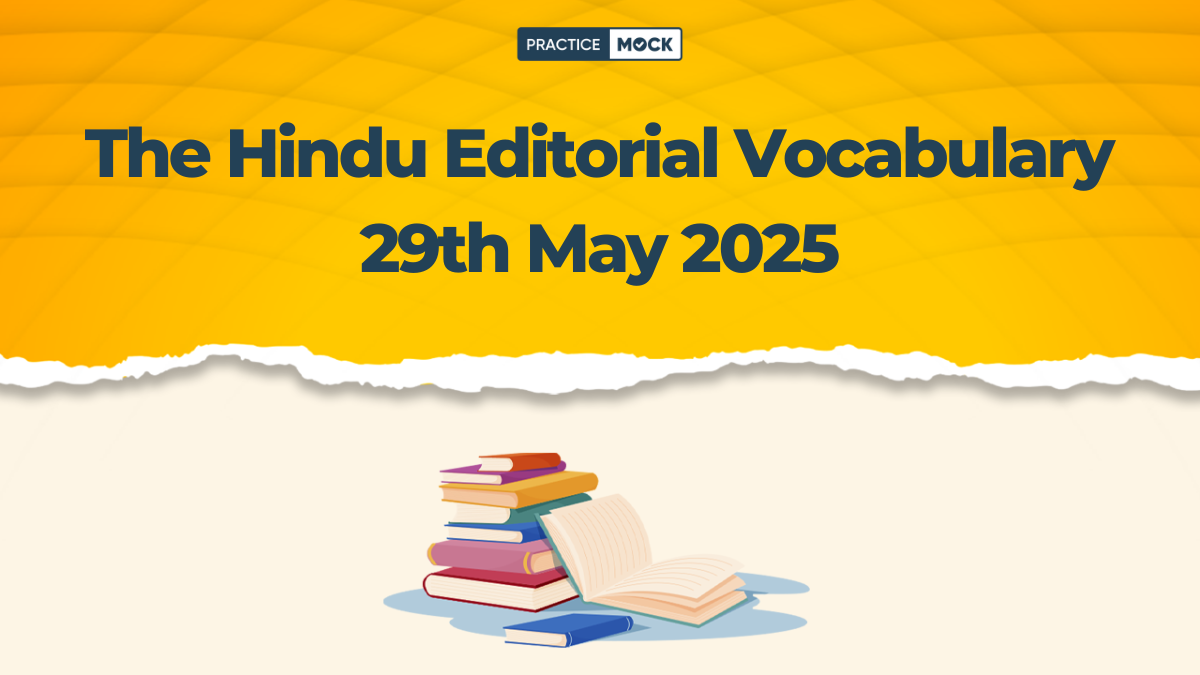The Hindu Editorial Vocabulary– Mar 31, 2022; Day 259


| Difficult Word/ Phrase | Contextual Sense |
| Scrutiny | close or minute examination |
| Inevitable | Incapable of being avoided or prevented |
| Embody | Represent or express something abstract in tangible form |
| Coercive | using force or the threat of force |
| Self-incrimination | the giving of evidence that might tend to expose the witness to punishment for crime |
| Disseminate | to spread information etc. so that it reaches many people |
| Stringent | Demanding strict attention to rules and procedures |
| Furnish | to supply or provide somebody/something with something |
| Detainee | Some held in custody |
| Grave | Causing fear or anxiety by threatening great harm |
Identity and privacy: On Prisoners’ identification Bill
Prisoners’ identification Bill, which raises privacy and data safety concerns, requires deep scrutiny (close or minute examination)
The Union government’s latest proposal to enable the collection of biometric and biological data from prisoners, besides the usual physical measurements, photographs and finger-prints, raises serious questions about its legal validity. Such questions are inevitable (Incapable of being avoided or prevented) in an era in which people look at official efforts to gather personal data with suspicion. The practice of recording the photographs and fingerprints of prisoners is more than a century old in the country, backed by a colonial law dating back to 1920. The Union government now proposes to expand the idea of taking “measurements” to cover “finger-impressions, palm-print impressions, foot-print impressions, … physical, biological samples and their analysis”, besides “behavioural attributes including signatures [and] handwriting”. The Criminal Procedure (Identification) Bill, 2022, which embodies (Represent or express something abstract in tangible form) this goal, has been introduced in the Lok Sabha. Some Members have argued that the Bill went against the Supreme Court’s landmark judgment declaring privacy as a fundamental right in K.S. Puttaswamy. Some contended that the Bill enabled coercive (using force or the threat of force) drawing of samples and possibly involved a violation of Article 20(3), which protects the right against self-incrimination (the giving of evidence that might tend to expose the witness to punishment for crime). There are other concerns too, such as the means by which the data collected will be preserved, shared, disseminated ( to spread information etc. so that it reaches many people), and destroyed. The Bill allows the records to be preserved for 75 years, and to be destroyed earlier if the person is discharged or acquitted.
The concern over privacy and the safety of the data is undoubtedly significant. Such practices that involve the collection, storage and destruction of vital details of a personal nature ought to be introduced only after a strong data protection law, with stringent (Demanding strict attention to rules and procedures) punishment for breaches, is in place. The 1920 law enabled the taking of measurements from convicts sentenced to a prison term of one year and above, and anyone arrested on a charge that attracts such a prison term; and thirdly, one who has furnished (to supply or provide somebody/something with something) a bond for good behaviour and peace. However, the present Bill includes all convicts, and anyone arrested under any law in force or detained under any preventive detention law. There is a provision by which an arrested person, not accused of an offence against a woman or a child, or one that attracts a prison term of seven years or more, may disallow the taking of samples. Not all detainees (Some held in custody) may know that they can indeed decline to let biological samples to be taken. And it may be easy for the police to ignore such refusal and later claim that they did get the detainee’s consent. The Bill is controversial, as the tendency to arrest activists, protesters and even innocent people and invoke grave (Causing fear or anxiety by threatening great harm) charges is on the rise. It would be in the fitness of things if it is referred to a Standing Committee for deeper scrutiny before it is enacted into law.
Want to improve your vocabulary further? Download the Lists of Word-Meanings of Previous Months here.
▶️Watch the analysis of this and other Hindu Vocab articles here.
Recent Posts
Is IBPS PO a Government Job?
Wondering if IBPS PO counts as a government job? Learn the similarities, differences, and why…
Puzzles for RRB Clerk 2025, Know Types and Ways to Solve Correctly
In this blog, we will explain why puzzles are important, the common types of puzzles…
Simplification Most Asked Questions for RRB Clerk 2025, Know How to Score 10 Marks in it?
n this blog, we have discussed the Most Expected Simplification Questions for the RRB Clerk…
UPSSSC PET Syllabus and Exam Pattern 2025
In this blog, we have provided the detailed UPSSSC PET Syllabus and Exam Pattern 2025.…
Union Bank SO Quant Repeated Questions, Check Types, Pattern, and Ways to Solve
In this article we are providing the Union Bank SO Quant Repeated Questions along with…
Economics for SSC CGL PDF Part 3: Download Free PDF
In this blog, we have provided the Economics for SSC CGL 2025 Free PDF that…


